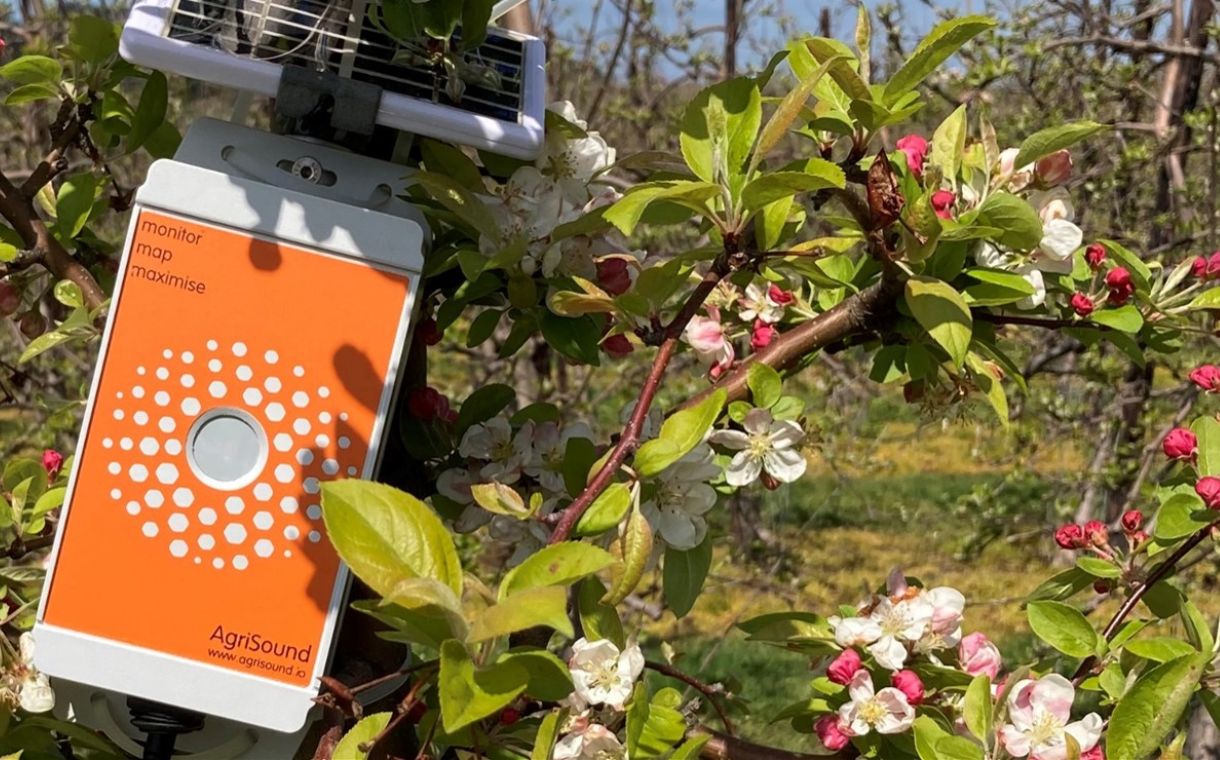Apple orchards equipped with insect monitors to listen out for bee activity
The UK has seen dramatic declines in insect numbers in recent years, driven by a range of factors, including pesticide use. In response, UK retailer Tesco and WWF have teamed up with start-up tech innovator AgriSound to launch its new insect-monitoring device called Polly across several English apple orchards. The technology will inform UK fruit growers about the activity of their precious pollinators. Funded through the WWF and Tesco’s Innovation Connections Programme, 50 of the AI listening devices, designed to capture and analyse the sound of a range of common pollinating insects, have been deployed across three different sites in Kent. The aim is to measure the biodiversity benefits of wildflower margins across three large commercial apple orchards, and their impact on pollination.
AgriSound anticipates that, by identifying areas of low pollinator activity in real time, the devices will support growers to boost biodiversity at key sites on their farms, to drive up pollinator numbers – and ultimately crop yields.
It is hoped that data from the devices will also enable farmers to measure the change in pollinator numbers over time, helping to evaluate the benefits of farm-level interventions to boost pollinator numbers, helping to enhance biodiversity and reduce the need for artificial fertilisers or pesticides.
Casey Woodward, founder and CEO of AgriSound, said: “At a time when biodiversity, including pollinating bee populations, is declining rapidly and the cost of food production is soaring, our project, funded by Tesco and the WWF, could help revolutionise the efficiency of commercial pollination, allowing modern farming techniques to enhance vital biodiversity, rather than negatively impact it, as has sometimes been the case historically. It is exciting to be able to expand our technology in the Tesco fruit supply chain to help growers encourage pollinators to the right areas at the right time, boosting yields, without the need for additional fertilisers or pesticides.”
David Edwards, director of food strategy at WWF, said: “The UK is one of the most nature-depleted countries in the world, and currently food production is driving it’s decline. From insects and birds to bees and mammals, UK nature is in freefall – and this is undermining the resilience of our whole food system.”



